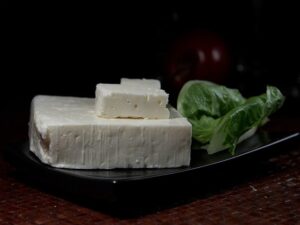Yet another Feta case has reached the European Court of Justice (ECJ). This time the question is whether the Kingdom of Denmark is obliged to stop Danish cheese producers from using the protected designation of origin (PDO) Feta for cheese exported to third countries.

Historically production and export of cheese under the name Feta existed in Denmark since the 1960s. Therefore, Denmark has also previously been involved in several cases regarding the registration of Feta as a PDO and the right to use the name (see for instance cases C-289/96, C-299/99, C-465/02 and 466/02).
However, in 2002 the name Feta was registered as a PDO meaning that Feta can only be used for cheese originating in the specified geographical area in Greece and complying with the relevant product specification.
In the present Feta matter, Case C159/20, Commission v Denmark, the Advocate General Tamara Ćapeta delivered her Opinion on 17 March 2022. This time regarding the interpretation of Article 13(3) of Regulation No 1151/2012 (on quality schemes for agricultural products and foodstuffs), which obliges the Member States to take the necessary measures to prevent or stop the unlawful use of registered PDOs on their territory.
The Commission (supported by Greece and Cyprus) claims that Denmark is breaching this obligation by failing to prevent Danish cheese producers from using the PDO Feta for cheese intended for export to third countries. Based on this, the Commission claims that the ECJ should declare
- that Denmark has failed to fulfil its obligations under Article 13 of Regulation No 1151/2012, and
- that Denmark has failed to fulfil its obligations of sincere cooperation arising under Article 4(3) of Treaty on European Union (TEU), either alone or in conjunction with Articles 1(1) and 4 of Regulation No 1151/2012.
Denmark admits to allowing Danish producers to use Feta as a name for cheese exported to third countries, and defends this behavior by claiming that Article 13 does not apply to products exported to third countries.
The main dispute between the parties is a question of interpretation. More specifically, the Advocate General had to assess whether Regulation No 1151/2012 Article 13 applies to and prevents the use of the name Feta for products exported to third countries if the products are not produced in accordance with the relevant product specifications.
Before presenting the parties’ arguments, she emphasizes that there is no provision in Regulation No 1151/2012 expressly indicating that the Regulation applies to exports to third countries, and that the two interpretations endorsed by Denmark and the Commission appear to her to be equally reasonable.
She describes Denmark’s interpretation as based on the perspective of the liberalization of trade and the Commission’s interpretation as based on the perspective of protection of intellectual property rights.
In her Opinion, the Advocate General reaches the conclusion that Regulation No 1151/2012 does cover and forbid such exports to third countries. This is also the conclusion the Commission argues in favor of. She gives two principal reasons for her conclusion:
The first reason is that her conclusion can be justified in the context of both interpretive frameworks set forth by the parties, whereas the opposite conclusion (the one Denmark proposes) can only be justified by the interpretive framework set forth by Denmark.
The second reason is that she finds the interpretive framework endorsed by the Commission to be the framework that better fits the EU policy underpinning the protection of designations of origin and geographical indications.
For example, she highlights that EU regularly negotiates international agreements with third countries in order to require them to take preventive measures against the production of products bearing registered names. It would, she argues, be illogical for the EU to do this, and at the same time tolerate export of “fake PDOs” to third countries from its own Member States. Such practice would also contribute to the perception of the PDO names as generic.
Regarding the Commission’s second complaint regarding the infringement of the obligations of sincere cooperation, the Advocate General finds that it cannot be upheld. She argues that Article 4(3) TEU cannot be infringed simply because a Member State disagrees with the Commission regarding an interpretation of EU law provisions. Not even if the Member State is wrong in its interpretation. Therefore, Denmark has not failed to fulfil its obligations under Article 4(3) TEU. It would be different, she states, if the ECJ pronounced what the law is, and the Member State continued to apply the law contrary to the pronouncement afterwards.
We will now await the decision of the ECJ with great anticipation.
_____________________________
To make sure you do not miss out on regular updates from the Kluwer Trademark Blog, please subscribe here.


